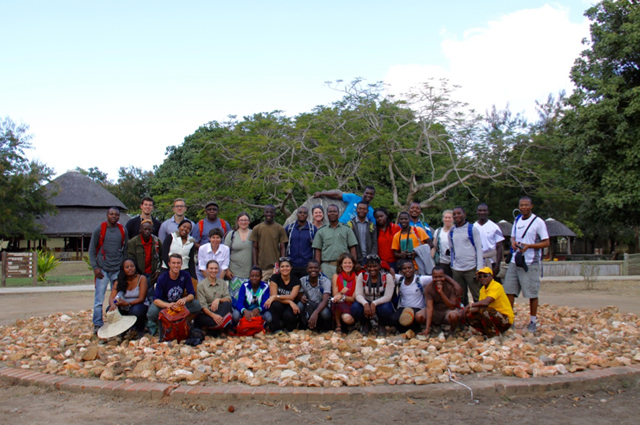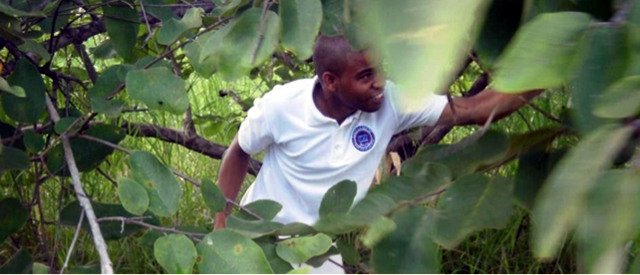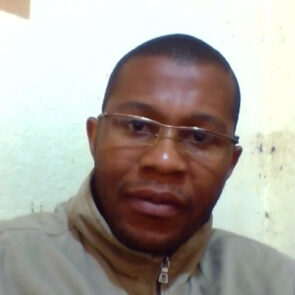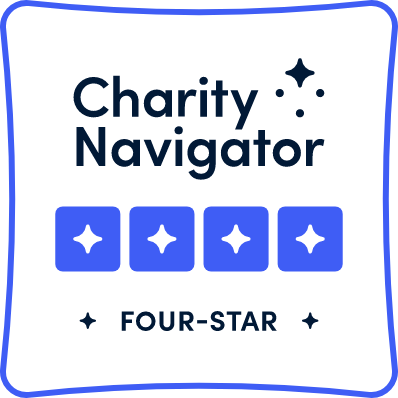Friday, July 17th, 2015
Mozambique, Africa–Since July 11th the 2015 Lost Mountain Next Gen Symposium brought together an international group of university students, scientists, conservation leaders and professional adventurers in Gorongosa National Park, Mozambique. The twelve-day symposium launched a conversation on “disruptive” conservation—a new model for building community-driven conservation in some of the world’s most remote and biologically diverse places in the world.


“The 2015 Lost Mountain Next Gen Symposium is about bringing future leaders into the discussion now,” Lost Mountain Director, Majka Burhardt explains. “In doing so, we are taking a multidisciplinary approach to one of the most fundamental challenges facing our world today: can there be powerful collaboration between communities and ecosystems that allow them to both thrive?”
The Lost Mountain Consortium is directed by US-based Additive Adventure and Mozambique-based LUPA. The Lost Mountain commenced in May 2014 when Burhardt, a professional climber and social entrepreneur, along with fellow professional climber Kate Rutherford, led a team of biologists, conservation workers, and filmmakers in an exploration of Mozambique’s Mount Namuli. The expedition spent a month conducting scientific and conservation fieldwork, using rock climbing to access previously unexplored habitats. During this time LUPA led the first integrated conservation and real-time rural development assessment of Namuli.
Beyond establishing the first technical rock climbing route on Mount Namuli, the team discovered one new snake species, 40 ant genera and 27 herpetological specimens, dozens of which have yet to be identified.
The Lost Mountain chose to hold the 2015 Symposium in Gorongosa National Park to further develop regional connections between current and emerging conservation initiatives in Mozambique.
The mission of the Lost Mountain is to catalyze a collaborative future for Mount Namuli where people and ecosystems can thrive together. A key tenet of the work includes open-sourcing solutions to these complex issues through opportunities like the Next Gen Symposium.
The United Nations Development Program ranks Mozambique as the third poorest country in the world and the majority of news stories point to the country’s emergence from a tumultuous civil war in 1992. “But Mozambique also has 14 major ecological regions, massive mountains, and numerous endemic species,” Burhardt says. “With the Lost Mountain we’re sharing a different narrative about this diverse land and its people.”
During the 12-day Symposium hosted at Gorongosa’s Community Education Center, 11 Mozambican students, 4 students from other parts of Africa, several members of the Departments of Community Relations and Scientific Services of Gorongosa National Park, as well as a cohort from the United States are learning about conservation planning and management principles, leadership development models, Leave No Trace techniques, and examining contemporary challenges facing conservation and development. The Symposium offers a chance for participants to explore a multidisciplinary approach to conservation, science, and natural resource stewardship in conjunction with learning hands-on skills for working in these environments and forging key connections with current and future leaders.
“It’s time to look the future to create harmony with nature,” says Aurélio Pais, a student at Universidade Eduardo Mondlane. “The conservation of forests and ecosystems like Gorongosa and Mt. Namuli is a way to save our lives, preserve our earth, and allow future generations to thrive here in Mozambique.”


Aurélio Pais
“By bringing key conventional and unconventional players into the mix, we were able to create nimble, effective, and innovative solutions for conservation and development,” Majka says. “We are using the Symposium to make real time decisions and action plans for our next steps with Mount Namuli—that is disruptive conservation.”
The Mozambican students hail from some of the best universities in the country including: Universidade Lurio-Pemba, Instituto Politécnico Superior de Manica, Universidade Eduardo Mondlane, and Universidade Zambeze-Mocuba. Together, they form a valuable part of the Lost Mountain Symposium as they help to diversify the groups’ planning process as the program recognizes the strength, innovation and creativity that comes with bringing younger, local students with fresh perspectives onto the team.
“As I waited for the first moment of this adventure, my spirit was captivated by an even greater enthusiasm…to invest time in looking for new perspectives,” says Gerson Tembissa, a Masters student at Eduardo Mondlane University in Maputo, Mozambique. “To me, exploring and conserving nature is like moving a chess piece: the victory depends on the way of thinking.”


Gerson Tembissa
The students from Mozambique like Gerson and Aurélio make up the core of the Lost Mountain Symposium group—they represent the bright future that lays ahead for conservation in their own country. The Symposium also offers key networking opportunities in the conservation and park community—a key employer in Mozambique. In fact Gorongosa National Park is the largest employer in the Sofala Province.
“To me, the 2015 Lost Mountain Next Gen Symposium is a great opportunity to raise awareness of biodiversity conservation in Mozambique,” says Aurélio. “I hope to learn a lot and share the knowledge acquired to other Mozambican brothers and sisters.”
“At this point in the process, it’s imperative to bring future leaders into the discussion around conservation and allow them to be part of the action,” says Burhardt. “And what’s even more important? That we do it right now.”
www.thelostmountain.org
Interviews, Imagery, and More Information: Leigh Boyle, Community Leader, Lost Mountain +1-604-910-4903
team@additiveadventure.com
ABOUT THE LOST MOUNTAIN
The Lost Mountain Initiative is an international venture to foster a future where people and ecosystems thrive together on Mount Namuli, Mozambique. The Initiative began with a 2014 field expedition combining rock-climbing, cliffside scientific research, integrated conservation planning, and media. Mount Namuli, a 7,936-foot granite monolith, is the largest of a group of isolated peaks that tower over the ancient valleys of northern Mozambique. It is one of the world’s least explored and most threatened habitats. Here, plants and animals have evolved as if on dispersed oceanic islands, so that individual mountains have become refuge to their own unique species of life, many of which have yet to be discovered or described by science. Biologists and conservationists from around the world have identified Mount Namuli as a global hotspot: a place of critical biodiversity and an opportunity to model a new vision for wildlife preservation that integrates the wishes and needs of local people.
The Lost Mountain Consortium is directed by US-based Additive Adventure and Mozambique-based LUPA. The Lost Mountain is supported in part from a grant from the Critical Ecosystem Partnership Fund—a joint initiative of l’Agence Française de Développement, Conservation International, the European Union, the Global Environment Facility, the Government of Japan, the MacArthur Foundation and the World Bank. The Lost Mountain Next Gen Initiative’s presenting partner is Positive Tracks, a national, youth-centric nonprofit that helps Generation Next get active and give back using the power of sport and adventure. With key support from Ethiopian Airlines, Osprey Packs and Goal Zero and supporting sponsors Clif Bar, Patagonia, Kickstarter, Petzl, Scarpa, Julbo and 1% for the Planet.
thelostmountain.org | www.thelostmountain.org/next-gen-2015-symposium/ facebook.com/lostmountainorg | https://www.facebook.com/majkaburhardtofficial | @majkaburhardt
Gorongosa Restoration Project integrates conservation and human development with the notion that a healthy ecosystem will benefit humans, which in turn will be motivated to support the objectives of the Gorongosa National Park.
If you would like more information about this topic, or would like to schedule an interview with those involved in the project, please call Vasco Galante at +258 822970010 or email vasco@gorongosa.net.
For more general information, visit www.gorongosa.org

